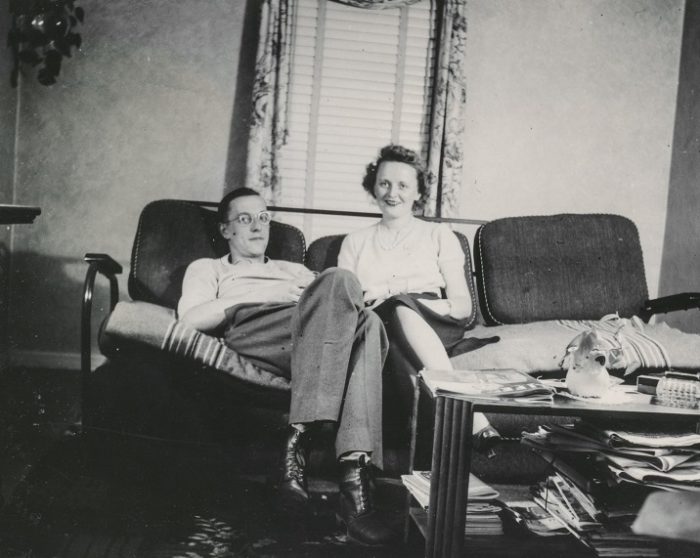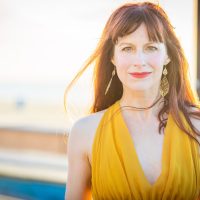Did you have a class in school called Relationship Training?
In your younger years, did anyone sit you down or require you to take a course on what a healthy relationship actually looked like? Did you ever receive a book on conscious love?
My guess is your answer is no. I know I sure didn’t.
And it wasn’t until I went through a devastating divorce in my late 30s that I realized a shocking truth: I didn’t know what I was doing.
I didn’t know what a healthy relationship actually looked and felt like.
In my heartbreak, I found Zen and took up the practice of “Beginner’s Mind.” I decided to become a student of relationships and start from scratch. I wanted to learn how to love and be loved in my personal relationships.
What I learned not only ended up bringing in a life partner who adores and cherishes me but has also helped hundreds of my clients to create loving alliances around them that affirm their life.
When we are surrounded by healthy relationships, we are supported and held. We become energized by the people around us and can relax in their presence. We are loved and seen for who we are. It’s like a big sigh of relief—we don’t have to pretend or be anyone else.
And most of all, we can end the cycle of dating people who disappoint us or having friends we can’t rely on.
So, let’s go to school together! The bell just rang on a new class I like to call Relationship Training, and it’s guaranteed to bring in abundant love and support in your personal relationships.
Relationship Training is looking at our relationship style: how we speak to others, how we show up, and what kind of reactions we receive. It’s breaking down how we relate to others in thoughts, words, and actions.
It’s the work of the heart, and probably the most important work we can do if we want loving relationships in our life. This is because our loved ones gravitate most to the frequency of our heart, and not our mind, our outfits, our accomplishments, or our haircut.
It’s our heart.
Let’s focus on how to create powerful heart-based relationships—relationships that actually affirm our life, emotionally, spiritually, mentally, and physically. And all heart-based relationships have one thing in common:
Heart-based relationships are available.
What does available mean? Available means this person is there for you. They are present and on the same page, and most importantly, they want to be present for you. They have a genuine desire to contribute to your life and your well-being.
This looks like a partner or friend who answers your calls, listens with compassion, and asks you what you need. When you are struggling, they don’t try to “fix” you or come up with solutions, unless you have specifically asked for help. They hold you when you cry, allow you to rant, and celebrate when you’ve had a win. They are an ally and regularly affirm your ability to weather any storm. They see you as capable.
Available means they actively participate in creating agreements and actions that only strengthen the relationship and allow you to grow. You feel energized after being with them and excited to take the next steps with them.
Now, let’s look at what unavailable means.
Unavailable means the other person is not interested in agreement. They are not present, and have other values, events, or needs that are more important to them than growing with you.
Unavailable can look many different ways, depending on the situation. Here are some examples: it could be ghosting, not returning emails or messages, or just picking fights when you share your desire to connect. It could be that when you need to cry, the other person shuts down and tells you to “let it go” or “it could be worse.” Perhaps when you seek a hug or comfort, they turn away or their whole body is stiff as you wrap your arms around them. You may see them look at their phone or the TV instead of giving you their full attention, or they spend all their time feeding addictions. When you have a win to share, they change the subject or meet you with dead eyes. Maybe you hear more criticism than praise and feel like nothing you do is good enough.
So, how can we apply this information in our lives?
Take stock of your personal relationships. Grab your journal and write out the people closest to you now—the ones you feel love for. This could be a romantic partner or your closest friends. Next to their name, write out what your last interaction was like. When you had a celebration to share, what was their reaction? And when you were struggling or feeling low, how did they respond?
Did you feel heard and seen, or judged and criticized? Did you leave your time with them exhausted, or did you feel energized?
Once you look at your answers, write down whether you feel this person is available or unavailable.
I want to take a moment to just offer some breath here. This may be overwhelming for you, especially if you are recognizing many of your relationships are unavailable. And I want you to know that I get it.
After my divorce, I took a year and a half off to heal before I started dating—and I was a hot mess! I went on the first date of my life at the age of 38 and had no idea how to even start handling the online scene and all the dating apps. I wanted a loving relationship more than anything, but I had a lot to learn. I hired a coach, started dating, and experienced heartbreak after heartbreak. I was ghosted, stood up, and shocked at some of the responses I received from the guys I dated. Where were the great guys? It felt like nothing I tried was working.
As I approached my early 40s, I went into a panic because I wanted to have a family. So I sought the help of an incredible relationship therapist. In one session, he zeroed in on my issue.
I was chasing the unavailable man.
As a woman, I felt like such a stereotype. But bringing that to my awareness was a game changer. At the time, I was dating a single dad who literally told me he didn’t want to be in a serious relationship. He was just getting out of a divorce and didn’t want to be intimate with me. He was being honest, but I was so hooked on the fact that he had a young baby that I had been blinded. Thanks to my therapist, I woke up.
And four months later, I met my life partner. What set him apart? He was available and wanted to grow with me.
So, consider this is a moment of compassion and care as you look at your relationships. It’s also important to mention that when someone is unavailable, that is just where they are. They have other needs and are saying “yes” to those needs. When you recognize they are not in a place to be available to you, you can release them. And then you can actually create the space to call in the people who will support you.
Awareness is always the first step, so let this unfold for you with care.
Pay attention to whether the people in your life are available or unavailable. Release those who are unavailable with grace to create their own path. This may mean ending a romantic relationship or changing the status of a close friend to more of an acquaintance. While this is a tender process, it’s actually the highest form of love we can hope for—one that creates a better situation for you and the other person.
And if there is a change that is necessary in the status of a close relationship, be sure to create some compassion and higher levels of self-care during this time. It may be helpful to reach out for support from other loved ones, give yourself time to journal, or spend some loving time in nature where you can fully feel everything. Allow any grief to arise and be cared for.
As Louise Hay so beautifully said, “I am willing to let go. I release others to experience whatever is meaningful to them, and I am free to create that which is meaningful to me.”
Come back to your power—the power of available love.
~












Read 4 comments and reply